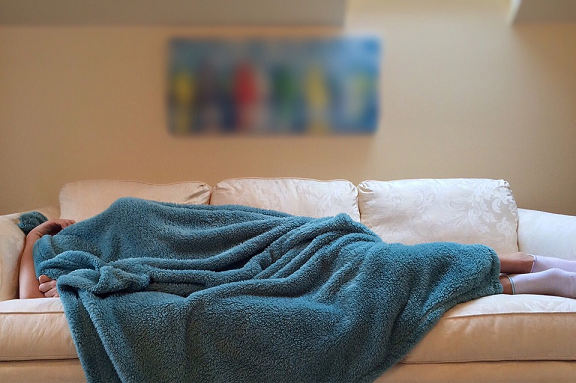Sleeping 101: Tips to Fighting Snoring and Getting a Better Night’s Sleep

So you want to feel more energized and in the zone with your day-to-day life? Here’s your first step: evaluate your sleeping and waking schedule. Take inventory of where your time is going in the morning before work, during work, after work, and in the evening before bed. How efficient are you with your time management?
For instance, are you finding yourself in the same cycle of sleeping past your alarm, hurriedly making lunches and then rushing off to work, only to find yourself ready for a break by 10 a.m.? Yes, day-to-day tasks take time and energy, but perhaps part of the exhaustion is from lack of effective sleep planning.
You heard me right: sleep planning. We are all guilty of watching “just one more episode … ” but what does that really mean? Sure, every now and then you have to finish the season finale or see who he will give the rose to, but more often than not, spending your night watching your favorite show is detrimental to your health. Watching TV is not necessarily bad for your health, but that blue light that comes from your screen, be it computer, phone or T.V. has been linked to sleep issues. This is largely because the light that comes from the screen has been shown to increase users focus. Which is great when using your screen in the daytime, but when using at night that blue light can disrupt your circadian rhythm and cause irregular sleeping patterns.
I can’t sleep; what’s going on?

You’ve managed your time, turned your phone and off and are trying to sleep, but can’t. Why? Well, there’s no straight answer, but there some steps and some healthy remedies you can take to ease yourself into a peaceful sleep for the evening.
- Drink some soothing tea right before bed to relax the body and brain.
- Turn off all electronics at least 45 minutes before bed to signal to your brain it’s bedtime.
- Have your last cup of coffee by 4:00 p.m. Studies have shown even drinking caffeine 6 hours before your bedtime can impact your ability to fall asleep. So watch out when having that afternoon cup of joe; if it’s 5:00 pm and you plan to be in bed by 10:00 pm, maybe go for the decaf option.
- Exercise! But, in the morning. Working out right before bed is a gamble but may end up waking your body up more than relaxing it.
- I want to sleep but my snoring partner is keeping me up, what do I do?
- Okay, so you’ve followed the above advice and are ready for a sound night’s sleep, but now your partner is keeping you awake with their snoring! So, what do you do now? You may have banished them from the bedroom for now, but what about later? They can’t sleep on the couch forever.
If you or your partner is ready to stop snoring, here are just some simple steps to take that have shown to help:
- Get regular exercise
- Sleep on your side or stomach
- Explore some healthy easy to use herbal remedies
- Stay hydrated
- Maintain a healthy diet
Conclusion: Sleep is vital to your overall health and well-being It seems like common knowledge, but sleep is essential to your overall well-being. Not getting the proper amount can lead to an array of health-related issues. The list is nearly endless, but here are just a few health-related issues that can arise from a poor night’s sleep:
- Early wrinkles
- Increased constipation symptoms
- High blood pressure
- Increased weight gain
- Poor attention span
It can be difficult to get the recommended 8 hours of sleep in a culture that applauds the busy bees and those who work overtime to get the job done. So often we negotiate with our sleep schedule rather than other parts of our day in order to accomplish all of our planned tasks, and that’s not a good thing. Having a solid sleep schedule is so important, and getting those full 8 hours can help you to stay focused and driven during the day so those tasks aren’t as daunting when functioning on little sleep. Getting a good night’s sleep doesn’t just make the next day at work easier — it makes for a healthier you.
Having a good night sleep is vital for all over health and wellness!
If you have any tips or remedies that help you get a good night sleep or how to stop snoring please share them in the comment section. Please share this article!

Pingback: Sleep Apnea and Snoring: How are they Different?